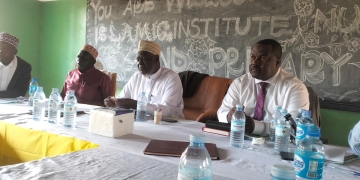
Government has given Electro-Maxx a six year contract to supply thermal power to the national grid at US$ 8 cents. Electro-Maxx, which belongs to Patrick Bitature, has a 50MW thermal plant in Tororo district.
Its previous contract expired at the end of September, 2108. In the new contract, Electro-Maxx will be selling power to government at 8 cents. Electricity Regulatory Authority (ERA) CEO, Engineer Ziria Tibalwa Waako told Uganda Radio Network that Uganda has no surplus power yet as many people may think.
The only surplus, she said is the power generated by thermal plants. Uganda’s installed power capacity stands at 955MW. This includes 100MW generated by Namanve thermal plant and Electro-Maxx. Each has 50MW installed capacity.
She said the country will get surplus power when Karuma and Isimba hydro power projects are completed and connected to the national grid. “We only have adequate power to serve demand and the only surplus we have is from the thermal plants,” Tibalwa said.
Previously, she said Electro-Maxx was paid for power supplied depending on the cost of diesel that varied from month to month. The company was also paid an additional 3 US cents for capacity building.
Tibalwa refused to comment on how much Electro-Maxx will be paid for capacity building in the new contract. However, she insisted that the contract renewal is for the good of Ugandans because it guarantees power security.
The Acting Director of Energy Resources in the Ministry of Energy and Mineral Development, James Banabe last week said they had rejected pressure from Electro-Maxx to add US$ 2 cents for capacity building.
“What the regulator (ERA) did, they agreed on an extension, and agreed on 8 cents as an energy contract. In the ending contract, it naturally exit that cost because of additional capacity fee.
There is some pressure to bring some 2 cents as capacity cost but at least on our side, we are saying no,” Banabe said while answering queries during the sector review meeting.
He argued that the thermal plant has been useful in Tororo region. “There are times when the sun is off and solar cannot be utilized and there is a deficit of power and it helps,” he said.
Banabe said Ugandans shouldn’t look at the plant as idle.










